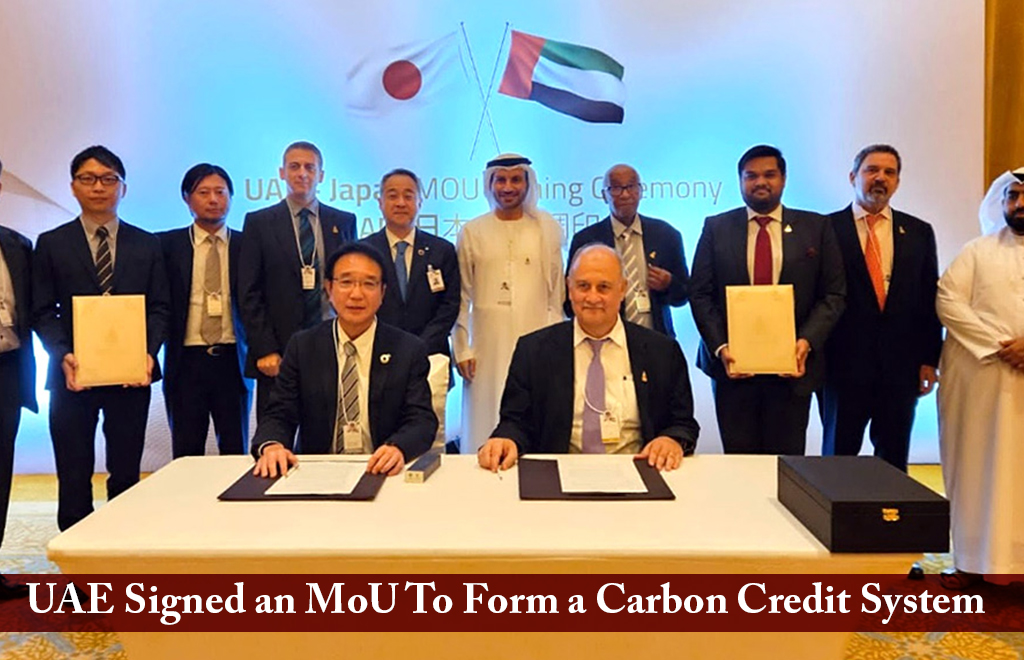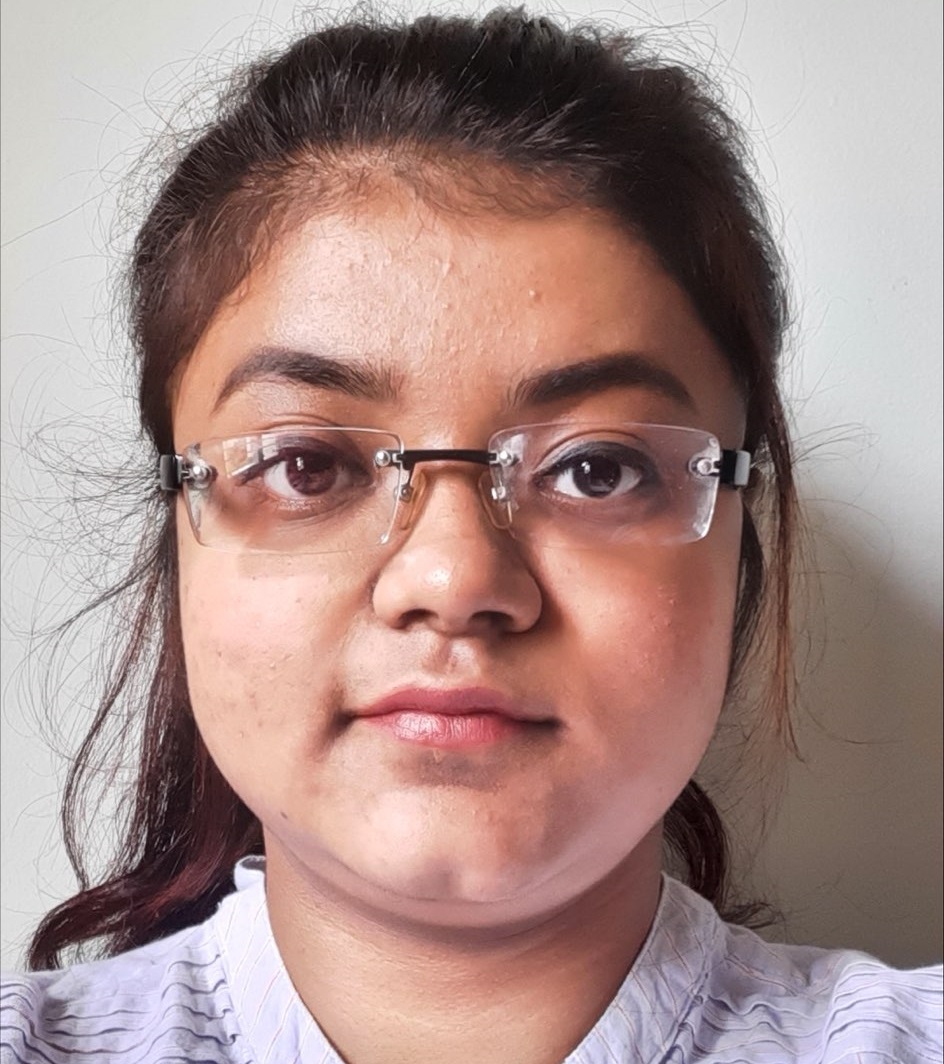
UAE Signed an MoU To Form a Carbon Credit System
The Ministry of Climate Change and Environment (MoCCAE) of The United Arab Emirates is all set to develop a Carbon Credit System, by forming an initial partnership with the Venom Foundation and Industrial Innovation Group.
Mariam bint Mohammed Almheiri, minister of MCCE has validated the contract by signing a Memorandum of Understanding to process the information of a national carbon credit system using a unique blockchain technology.
The aim of the collaboration is to balance the biodiversity in UAE by minimizing emissions and ameliorating a sustainable agriculture system. The best effective results can be noticed only after providing the utmost transparency level, security, efficiency, and reliability in terms of monitoring and managing the calculation, issuance, transfer, and strict tracking process of carbon credit, alongside the facilitation of the process of digitization.
The event of Mou has been signed by Mohammed Saeed Al Nuaimi, on behalf of MoCCAE, between Taryam Matar Taryam, the CEO of Industrial Innovation Group, and Peter Knez, Chairperson of the Foundation Council in Venom Foundation at the Dubai Ministry office.
“As the UAE prepares to host COP28 in November, the country is striving to double its efforts and showcase its inspiring experience to the world in addressing climate change by reducing carbon emissions across different sectors. The UAE believes in its ability to make a difference in this field and has pledged, through the Third Update of its second Nationally Determined Contributions (NDCs), to reduce its emissions by 40 percent compared to a business-as-usual scenario, an increase of 9 percent over its previous pledge” said by Mariam bint Mohammed Almheiri during the event.
She further added, “This requires working according to a scientific approach based on modern technology and the highest levels of transparency to monitor carbon credits to work according to realistic data, achieve tangible results on the ground, and achieve climate neutrality by 2050. The collaboration with the Industrial Innovation Group and Venom Foundation to establish the national system for carbon credits using blockchain is an important step in this field and reflects our determination to enhance the UAE’s climate action for a more sustainable future for us and future generations.”
CEO of Industrial Innovation Group, Taryam Matar Taryam said, “We are honored to contribute to the establishment of the UAE’s first national carbon credits registration system. The Industrial Innovation Group, with more than 30 years of experience, is committed to the UN Sustainable Development Goals and endeavors to reduce the environmental impact through decarbonization, as global climate change is closely linked to the increasing concentration of carbon dioxide in the atmosphere.”
He mentioned while explaining further that the Industrial Innovation Group has a good history of earning an extensive and sustainable national record of serving in different business sectors, establishing project documents, managing the carbon stock report, reporting, and monitoring different carbon usage projects.
“Venom Foundation has provided an unparalleled solution, acting as a key infrastructure for a global ecosystem for Web3 applications, with superfast transaction speeds and unlimited scalability to meet governments’ needs.” Knez added that the Foundation is “the first company in the UAE to develop and licence its blockchain technology and shape the future of national decentralised systems and digitise operations in corporate and government enterprises” said by Peter Knez, the hair of the Foundation Council at Venom Foundation.
Objectives
The MoU aims to work on four different strategic objectives that are related to minimizing and cutting down the amount of greenhouse gas discharge to achieve climate equity, development of agricultural business, effective investment in agriculture and food systems, and enhancement of the economic value of Environmental Health Programme, safeguarding the biodiversity around will help to promote the usage of ecosystem services for sustainable development.
The three parties will cooperate and work to develop a basic approach to technical resolution for a global-level project for registering carbon credits in the United Arab Emirates, with the regulatory framework based on the decision made by the government about the project under the national system for registering and issuing carbon credit reports, which will eventually analyse and provide solutions based on blockchain method which is even more effective and safe and effective. It will also identify and select more projects related to cutting down carbon emissions.
Platform to Register Carbon Credit
The collaborative project also has a goal to develop a constitutive and regulatory framework from the Ministry of Climate Change and Environment to reform a sa system at the national level to issue and register carbon credits.
The project includes creating a licensed platform and establishing a blockchain technology system that will ensure a safe and enough amount of carbon credit system reports. The platform will also ensure a valuable integration of the system to meet and fulfill all basic requirements for a successful establishment of developing business operations and a continuous process of generating carbon credit reports.
Alongside it will work on including more projects to evaluate the platform, reduce the emission of carbon, and remove carbon to ensure the process remains transparent, and progressive environmental inclusion. The final goal of this collaboration is to contribute to this field to achieve UAE’s National Determined Contribution or NDC.
Areas of Activities
The MoU has been signed to cover many key areas like investment in agriculture sectors, investment in innovative and developing agrarian technologies, investment in leading food industries, ensuring more food safety procedures, development of the beekeeping sector, and investment in fish farming and aquaculture.
- It will also activate and implement the law and regulations for the quarantine process for plants and animals, including the prevention of sudden break out of infections or diseases of animal and agricultural pests.
- Development of the country’s agricultural sector, and animal counts.
- Development of palm sector.
- Promote more green-based energy, renewable energy, and waste-to-energy sources.
- Enlargement of the plan of green building, green city, green transport, green sound management technology, and other factors for sustainable biodiversity.
- It also includes taking the required steps to implore air quality, biodiversity, and environmental protection, alongside monitoring the continuous changes in natural biotic and physical factors, reservation of natural sources, and implementation of more innovative ideas to develop more sustainability and food security.
- More development will come with more job opportunities, which require more scientific study and research centers. It will take steps to establish education and training to qualify for the dedicated fields of Carbon Credit System projects.
- In addition, the MoU also covers some major areas like the adaption of climate change, Green investment, reduction of carbon emissions, minimization of environmental pollution, and analysis and implementation of a strategy to balance neutrally.
- It will also enhance partnerships with other private sectors to improvise waste management methods, and processes to develop the services, exchange of technical information, law and courses, experiences, and visits.
- The project is to spread more awareness and pass on pieces of the required information about the green environment. This will include some more factors like food security, green economy, environmental laws, and securities, legislation of the country, circular economy, supportive environmental tourism, evaluation of employee capabilities, innovation, and technical development, etc.

 Previous Article
Previous Article